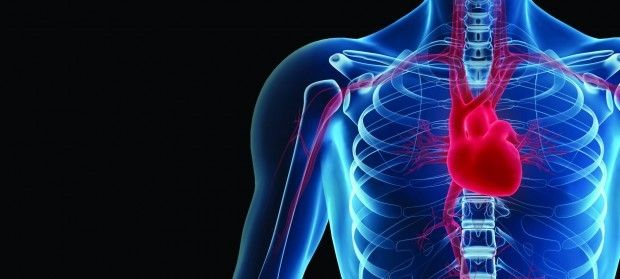Vitamin K2 May Help Inhibit Vascular Calcification, Scientific Review Suggests
Researchers noted that while surgical and trans catheter aortic valve replacements can treat severe symptomatic calcific aortic valve stenosis cases, not all patients are good candidates for the procedures.
Photo © iStockphoto.com/comotion_design

Calcific aortic valve stenosis (CAVS) is a common cardiovascular condition among the aging in which calcium deposits in the aortic valve impede blood flow from the heart. And yet no current medical therapy for the condition exists.
However, a review paper1 recently published in the European Heart Journal suggests that supplementation with vitamin K2 has potential as a means of heading off calcification in the first place.
In the review, researchers noted that while surgical and trans catheter aortic valve replacements can treat severe symptomatic CAVS cases, not all patients are good candidates for the procedures. The researchers also considered studies investigating the utility of statin drugs in addressing CAVS and found that said drugs appear to have no effect on its progression or outcomes and may actually worsen the condition.
But the evidence under review pointed to vitamin K2 in its long-chain menaquinone form (MK-7)-which is transported efficiently beyond the liver-as “an attractive option to replenish vascular vitamin K stores to ensure optimal calcification inhibition,” the researchers wrote.
Hogne Vik, PhD, chief medical officer, NattoPharma ASA (Oslo, Norway)-a global vitamin K2 supplier-called the review “so very significant” in a company press statement. “Recognizing that medical therapies are proving ineffective, researchers are shining a light on efficacious supplemental alternatives, which leads them to the clinical research that NattoPharma has spearheaded,” he commented, citing results of the company’s three-year cardiovascular study2 showing that daily supplementation with 180 mcg of MK-7 (as MenaQ7) demonstrated a cessation and even regression in arterial stiffness in healthy postmenopausal women.
“The relevance of our three-year study has resulted in several studies by the medical community for patients with existing coronary artery calcification, aortic valve calcification and peripheral artery calcification,” Vik added.
As for the current study, the researchers concluded, “The pathophysiological mechanisms involved in CAVS initiation and progression are being rapidly elucidated and include inflammation, fibrosis, and calcification. With this advancing knowledge, we have identified novel therapeutic targets like vitamin K and new imaging techniques that can be used to test the efficacy of novel agents and further inform our pathophysiological understanding.”
References:
- Peeters FECM et al., “Calcific aortic valve stenosis: hard disease in the heart.” European Heart Journal, vol. 0 (2017): 1-8
- Knapen MHJ et al., “Menaquinone-7 supplementation improves arterial stiffness in healthy postmenopausal women: double-blind randomised clinical trial.” Thrombosis and Haemostasis, vol. 19 (2015): 113(5)






